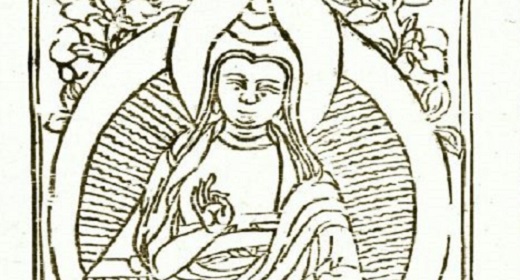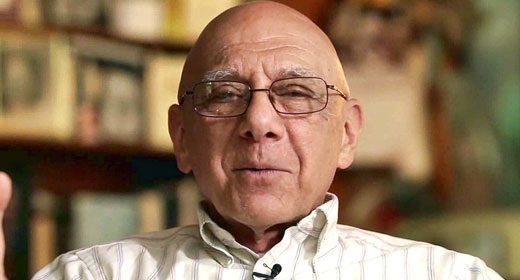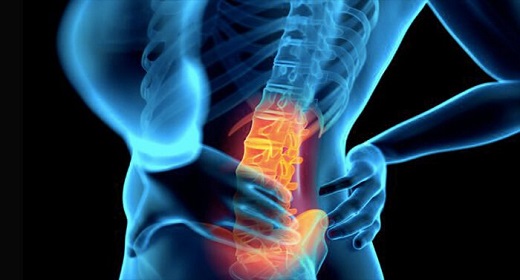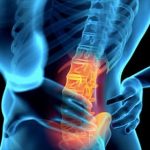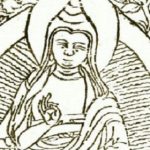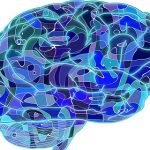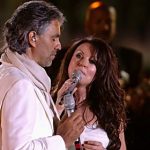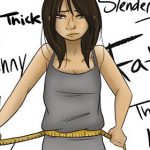Joan Borysenko, medical scientist, psychologist and educator, possesses an unforgettable warmth…
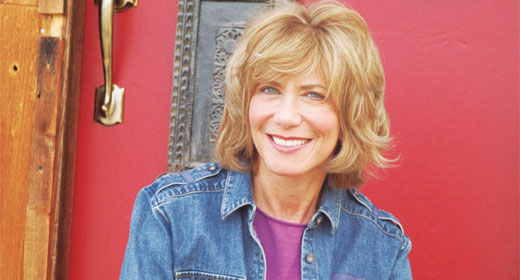
She openly strives to “meet people where they are” and in doing so, instantly establishes rapport. Her presentations sound more like spiritual inspiration than medical advice, but her professional accomplishments and scientific credentials are unquestionable: An elite education from Harvard Medical School including three post-doctoral fellowships, groundbreaking work as a clinician, co-founder and director of one the first Mind/Body clinics in the US, and a thriving career as an author of fourteen books including the New York Times bestseller Minding the Body, Mending the Mind.
Yet, what truly distinguishes her in the field of Alternative and Complementary Medicine is the fact that she walks her talk. Through the experiences of her own challenges and personal transformation, she has effectively bridged scientific credibility with spiritual integrity. As a result, Borysenko radiates an authentic love and compassion that endears her to both professional and lay audiences alike.
SuperConsciousness Magazine is honored to bring you Dr. Borysenko as this issue’s featured interview.
SC: You’ve played an important role in bringing about a broader, more comprehensive understanding of the nature of health, healing and wellness. What do you see as the relevant differences between traditional, pharmaceutical-based medicine, the integration of alternative therapies into our current health care practices, and the pursuit of a greater understanding about wellness?
JB: I’ve been in this field since when it was first called holistic medicine in the 1970’s, so I’ve had a long time to watch the evolution of medicine. During that time, what I’ve noticed are many concerns and attitudes that bring people to alternative medicine. On one end of the spectrum are those people who are simply just trying to avoid pharmaceutical medicine. Rather than looking at health and wellness to include all the forces of life, from environmental forces to emotional forces to spiritual kinds of things, you have just the opposite: Those who approach alternative healing as in “This is a way that I can avoid chemotherapy.”
Yet, The National Institute of Complementary and Alternative Medicine describes illness as an opportunity for personal growth and healthcare providers as able to facilitate a person’s growth by working along with them. From my point of view, that is what wellness is all about.
The National Institute of Complementary and Alternative Medicine describes illness as an opportunity for personal growth and healthcare providers as able to facilitate a person’s growth by working along with them. From my point of view, that is what wellness is all about.
When I think about wellness, it includes psychological health, human maturation, and spiritual growth. Together, they are all a part of wellness and exist at the opposite end of the spectrum from the people that attempt to avoid treatment. And, of course, there’s everything in between.
What I do see in this country is a definite interest, a growing consumer driven interest, in looking at wellness. And that, of course, is why hospitals have put in their own wellness departments and complementary medicine departments. It’s really because that’s what the public is asking for. Unfortunately, many of those departments, to be quite honest, don’t really make it because they’re not utilized well, or they’re a hodgepodge.
Clinics will bring in somebody who does Reiki, another who does acupuncture, someone who teaches mindfulnessbased stress reduction, and somebody who teaches yoga. There’s a sense that it’s a little bit like complementary, but healthcare providers can easily fall into the trap of really becoming like specialists of any type who only see their specialty instead of the whole.
True complementary medicine follows that definition of supporting the growth of the whole person and the facilitation of that growth no matter what discipline you’re in. It’s a rare clinic that’s able to bring it all together, and that’s the challenge. The alternative for a person seeking wellness is to put together a team, because putting together the team for one’s self is an extraordinarily empowering thing and an important part of the process. At the same time, you have to be extremely motivated to do that as well as possess a certain capacity to figure out what kind of treatments you might need and where to look.

I think we have an awfully long way to go but at least we’re moving in the right direction. For most people it is much easier to ask for a pill or ask for a homeopathic remedy or go for an acupuncture treatment than it is to reflect on one’s life and understand that adverse childhood experiences have a relationship to health later in life.
SC: How important is it to address childhood experiences for obtaining or maintaining wellness?
Once a person experiences being diabetic, having heart disease or obesity, it’s very difficult behaviorally to exercise or to change the diet when it is relational to their childhood. Most people don’t want to go there, and that’s the challenge most people are up against. The most interesting research that’s come out in the last decade is called the ACE studies.* [Adverse Childhood Experiences]
The ACE studies really gets to the bottom of things. If we really want to talk about wellness, we need to start with our children, and to do that, first we have to heal ourselves. We have to go far enough back and address our issues so that we don’t automatically hand the difficulties we had in our families off to our kids. Research shows this to be a very important part of healing, but it’s a hard sell for people.
SC: What have you found that helps people be more committed to negotiating that path?
JB: It’s very empowering for people when they realize they can learn how to change their breathing, learn meditation, learn mindfulness, learn yoga, and notice right away a decrease in symptoms. That’s very basic, and the first set of skills people have to learn.
From there, the next step is to address emotional intelligence and the fact that there’s a tremendous amount of chronic stress that comes from the state of learned helplessness related to such thoughts as ‘whatever I do is never good enough. When anything goes wrong, it’s my own fault. That this is the story of my life and it’s pervasive through every part of my life.’ People begin to understand their explanatory style, and only with that awareness can people actually look at their thoughts and make other choices.
Questions are asked like, ‘How do you manage stress? What is it to be stress hardy?’ And that leads directly into ‘Where did you learn these things?’ Emotions that have been most familiar throughout life are addressed and questioned with ‘What have you always done with those emotions?’
Why people want to be done with it is because they become so miserable. That’s always the impetus. There are relatively few people who simply say “well, my life is pretty good and I have a sense that if I did all this work it would be even better.”
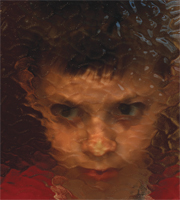
There was certainly an emphasis on emotional literacy and it touches on childhood and the kinds of things we learned as children. When you have issues left from childhood, you’re often left with a sense of learned helplessness and that helplessness ripens into depression. That’s actually the best cognitive model of depression and that comes from Dr. Martin Seligman’s work on Positive Psychology.
SC: What is the relationship between the manifestation of physiological and psychological disease, reviewing childhood issues, and forgiveness and self-forgiveness?
JB: The second book I wrote, Guilt is the Teacher, Love is the Lesson, was based on nine years of clinical observations; that there were always people who picked up the ball and ran with it.
I noticed that a lot of people just don’t like themselves and they were always down on themselves. And, of course, they blame themselves, they can’t forgive themselves, they project that, they blame others, they can’t forgive others. After watching all of this, I began to notice the qualities of those who did not transform themselves.
You know, the word ‘heal’ really comes from the Anglo Saxon root haelen, which means to make whole: A human being with a soul, as a human being with a body, with emotion, with a family system – all of those things.
Those that could not heal were still fragmented, they were emotionally bothered and their symptoms weren’t improving at all. And when I really began to ask what is it that prevents people from healing, it became very clear that the largest thing was holding onto regrets and resentments, which came directly out of childhood experiences and the subsequent lens then through which they viewed the world.
I sent a lot of people to therapy over the years, and many of them learned. They were actually glad to begin to touch on those things once they really realized the amount of pain they carried. Through the years, I’ve also been a tremendous proponent of the Hoffman Quadrinity Process.
The Hoffman Process views the human being as a quandrinity, or four parts: A physical body, within that body the adult reasoning intellectual self, and an emotional self that is frequently the unhealed emotional child that carries on a dialogue with the intellect. And, then, of course, there is a person’s spiritual self.
There are other people who really start to transform in that place of uncertainty. They start to do the things that maybe they’ve known were important before, but are really important now like reaching out and looking for who truly are their allies. ‘Who are my mentors? What can I learn?’
The process includes healing your relationships with your parents, understanding how you developed as you did, and how those patterns of behavior and thought were developed since childhood. It’s a weeklong process and includes looking at the patterns of behavior that your parents had before you were even born. If we either adopt the behaviors of our parents, we’ll be loved and become just like them, and even if we rebel against those behaviors, there’s attachment to the parents one way or another.

The first couple of days are really for understanding the patterns of the parents. They call it prosecution of the parents; get your anger out. The next couple of days are very deep compassion processes where you understand your parents and how come they are the way they are as best you can. They do this in a very brilliant way. The training culminates with a sense of self-forgiveness that’s incredibly deep. Nothing, of course, is perfect for everyone, but it has done a tremendous amount of good. There are many ways to help yourself forgive the past and the Hoffman Process is certainly one of them.
SC: What were the circumstances in which people make the choice to address their issues and say, “I’m done with this. I want to be done with this forever”?
JB: Why people want to be done with it is because they become so miserable. That’s always the impetus. There are relatively few people who simply say “well, my life is pretty good and I have a sense that if I did all this work it would be even better.”
SC: Have you observed that people only change through adversity?
JB: I think there’s a tipping point for most people between the desire to wake up, to then be able to make a conscious choice, to engage in more conscious evolution of wellness and action in the world, and then to develop compassion toward other people. It’s different for different people, so there’s no way that I can generalize except that frequently serious illness is that tipping point for people.
Another thing that I started to notice when working at the hospital was the anatomy of change. For instance, let’s say a woman just found out that she has uterine cancer or breast cancer or lung cancer, or whatever it might be. What was frequently said to me was, ‘the day that I got my diagnosis I felt like I died right then and there. I just died.’
That’s actually true. That’s what a change process really is. You begin by dying to who you were. You can never go back to the way your life was before because it’s irretrievably broken. It’s like the ground has opened up underneath you and swallowed you, like a trap door.
That’s what a change process really is. You begin by dying to who you were. You can never go back to the way your life was before because it’s irretrievably broken. It’s like the ground has opened up underneath you and swallowed you, like a trap door.
The second stage is a period of dwelling in that place between no longer and not yet. And that’s been written about in many different traditions from the anthropological to the spiritual, like the Jews wandering in the wilderness for 40 years. Jesus cut it down to 40 days. He was very speedy after his temptation by the devil, before he returned from that liminal space completely transformed with something new to give to the family of humanity. The difficulty is making it through the liminal space. That time between no longer and not yet. Yes, a person may have the experience of death, but they haven’t yet gotten to the point of rebirth.
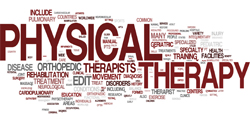
During that time of uncertainty, I’ve noticed one of two things tend to happen. One of them is that a certain number of people simply give up hope and often give up on their medical treatment, or they become lackluster about paying attention to what they should be doing.
Perhaps they are supposed to be exercising or they’re supposed to be eating right, but they don’t bother because they’re depressed. That despair and depression really shortcuts what could be happening in terms of transformation. At best, it prolongs the process. At worst, it really blocks the process.
There are other people who really start to transform in that place of uncertainty. They start to do the things that maybe they’ve known were important before, but are really important now like reaching out and looking for who truly are their allies. ‘Who are my mentors? What can I learn?’ And later in the process, they begin to mentor and help those they can help.
The study of people who are resilient is really a study of people who have a sense of how to survive that liminal space, that period of uncertainty. I think that’s incredibly important.
The third phase of the change process is when you come back transformed and your life has really become more conscious and you’ve developed the capacity to author your own unique gifts to other people. There has been an expansion of who you are as a human being, a kind of revelation of essence.
So, I used to give an anatomy of change lecture to all of my patients and to tell them it’s like an initiatory thing. And, you know, when a boy in Africa undergoes an initiation, and he’s taken from the mother’s hut, it’s really scary just like getting ill. And then for a year he has to wander in the wilderness and learn a whole other set of skills. And then he comes back with the manhood skills to take his place in a different way. Explained correctly, it can be more empowering when people think, ‘I’m an initiate in the rite of passage instead of the victim of some random horror.’

SC: What about personal expectations?
JB: You know, the thing that comes up time and time and time again, and I always go over it because it’s never old territory, is ‘new age guilt’. I have spent a greater part of my career trying to explain to people that yes, you are responsible for your health to a large degree, to the degree that you eat right, that you exercise, that you learn to manage your emotions, and all of that. But in spite of the absolute best that you do, people get sick anyhow, and often we don’t know the reason.
Unfortunately, there are people who want to oversimplify illness by saying, ‘You were thinking wrong. You attracted it to yourself.’ Those kinds of comments picked up again after The Secret came out. There is a middle ground.
Unfortunately, there are people who want to oversimplify illness by saying, ‘You were thinking wrong. You attracted it to yourself.’ Those kinds of comments picked up again after The Secret came out.
Back in 1989 there was a conference on holistic health in medicine in Bangalore, India, in which Mother Theresa and the Dalai Lama were co-sponsors. During the event a woman from the West and a man from an Eastern country were asked to sit with His Holiness and talk about health and healing.
I got to be the woman from the West, and there was a wonderful psychiatrist from India who was the man from the East. We were charged with asking questions of His Holiness that we thought were very, very important to ask. The first question I asked him was the new-age guilt question:
“So many of my patients feel guilty because they believe that they have caused their illness through their thinking. What is your perspective? What is the most conscious, enlightened thing I could tell them?”
Essentially what he said was that they should not be so simpleminded, and realize that there are many different routes. “There are genetic routes, there are environmental routes, there are emotional routes, there are, you know, relational routes.” He went on simply naming them and stating that a person can’t oversimplify to say that you created your own illness without understanding context.
It’s the journey of maturation as a human being – understanding the breadth of that context, and how we cooperate in enriching and purifying the various contexts of which we’re a part. That begins to happen through childhood healing and peeling away some of that mask that we have, those patterns we adopted so that we could stay safe in our family of origin, and then reconnecting with our own self.
SC: What are some of the other ways people tend to block achieving wellness?
JB: When somebody comes to see me who is significantly ill, I ask them if they have a theory about why they’re ill. What surprised me was how many people will say “I must have done something to offend God.” When we’re really stressed and frightened we will regress to the most infantile of childhood beliefs. That was the most popular belief as to why people thought they were sick.

I ask them if they have a theory about why they’re ill. What surprised me was how many people will say “I must have done something to offend God.”
Then the next most popular belief was I brought it upon myself with my thinking. And then a very small minority, maybe 10%, would say that it’s a mystery, “I may never know that, so I’m just going to concentrate on what it takes to get better.”
We recreate the image of God with the image of our parents and all of that comes up when people are facing an illness and all of these old religious beliefs come up. Many patients will say ‘I’m not religious, I’m spiritual,’ but they hadn’t really contemplated deeply what their beliefs actually were. Those old thoughts came back and grabbed them.
I’ve come to realize that much of the work I have done I call soul care because people needed a place to talk about meaning. What does this mean? What do I believe? It’s an important process to help one engage their own healing journey.



